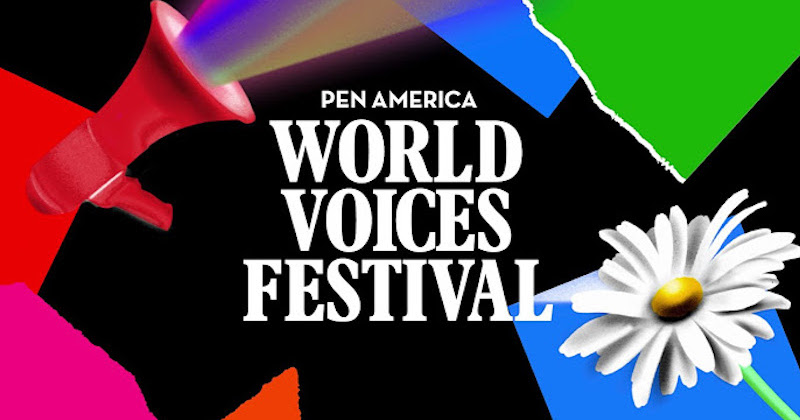
The PEN World Voices Festival has been canceled.
Following months of escalating protests over its response to Israel’s war on Gaza, and just four days on from the cancelation of its annual literary awards, embattled free expression organization PEN America has now also announced the cancelation of its World Voices Festival.
According to a press release published on the organization’s website in the last hour, the decision to cancel the festival (which was scheduled to take place in New York and Los Angeles from May 8-16) “was not taken lightly and happens amid an escalating pattern of suppressing discourse in cultural institutions and on campuses.”
The 20th incarnation of the World Voices Festival was originally set to include over 100 writers across more than 35 events, but after a number of prominent authors—including Naomi Klein, Michelle Alexander, Hisham Matar, and Lorrie Moore—withdrew in protest in mid-March (“In the context of Israel’s ongoing war on Gaza, we believe that PEN America has betrayed the organization’s professed commitment to peace and equality for all”), the wheels began to come off, with dozens more participants following suit in the six weeks since.
With two of its three signature events now canceled, many in the book world and beyond are wondering whether PEN America’s annual Literary Gala (currently still scheduled to take place at the American Museum of Natural History on the evening of May 16) will go ahead as planned.
“We’re taking it day by day,” PEN America CEO Suzanne Nossel told the New York Times.
Here is today’s PEN America press release in full:
(NEW YORK)— PEN America announced today the cancellation of the 2024 World Voices Festival. The decision to cancel was not taken lightly and happens amid an escalating pattern of suppressing discourse in cultural institutions and on campuses. The event, and the very mission of PEN America, is to elevate writers and foster dialogue across differences. Yet we have heard from writers who have come under tremendous pressure by those who characterize anyone who participated in our events, as taking sides in the war in Gaza.
A central feature of the planned festival was to have featured multiple Palestinian writers, enabling them to speak not just about the war but about their own books and works. We regret that this is not possible. We are grateful and express our deep sadness to the dozens of writers who voiced their commitment to remain in events, traveling from around the country and the globe.
Many writers explained their withdrawal from the event as an expression of protest directed toward PEN America’s response to the war in Gaza. However, we have also heard from dozens of writers who have had to endure harsh attacks on social media and heavy demands to distance themselves from PEN America. Many expressed genuine fear to us. As an organization that cares deeply about the freedom of writers to speak their conscience, we are concerned about any circumstance in which writers tell us they feel shut down, or that speaking their minds bears too much risk. Amid this climate, it became impossible to mount the Festival in keeping with the principles upon which it was founded 20 years ago.
“PEN America exists to unite writers in defense of free expression. The premise of World Voices is to engage across wide chasms of worldview and belief, including fostering direct conversation between and among those who disagree profoundly,” said Suzanne Nossel, CEO of PEN America. “We share the anguish over the loss of life and devastation of the war. We are listening to our critics. Over the last seven months, we have consistently taken and will continue to take steps to strengthen the core of our work: to support writers and stand for free expression. We now face a campaign that casts our struggle to reflect complexity, uphold our identity as a big tent organization, and show fealty to our principles as a moral abdication. The perspective that engaging with those who hold a different point of view constitutes an impermissible act of legitimization negates the very possibility of dialogue. It also betrays the essence of PEN’s charter and mission to dispel hatreds and engage writers and literature as a catalyst for empathy and a bridge toward common ground.”
“We greatly respect those writers who have followed their consciences and stand with those who felt compelled to this decision by virtue of the pressures they faced,” said Clarisse Rosaz Shariyf, PEN America’s Literary Programming chief officer. “We are committed to hosting a Town Hall convening in the near future to create a space to wrestle with the issues gripping the literary community and our own organization. We will welcome all of those slated to be Festival participants as well as PEN America members to be part of this event, and will share details on that soon.”
When Salman Rushdie first announced the founding of World Voices in 2005 he rued “our dumbed-down, homogenized, frightened culture, under the thumbs of leaders who seem to think of themselves as God’s anointed and of power as their divine right; it is harder to make such exalted claims for mere wordsmiths. Harder, but no less necessary … one has the sense of things shutting down, of barriers being erected, of that dialogue being stifled precisely when we should be doing our best to amplify it.” Nineteen years later, the very festival created to surmount these waves has been subsumed by them. But our faith is undimmed that open discourse will prevail, and writers will help light the way.
Dan Sheehan
Dan Sheehan is the author of the novel Restless Souls (Ig Publishing) and Editor-in-Chief of Book Marks.



















